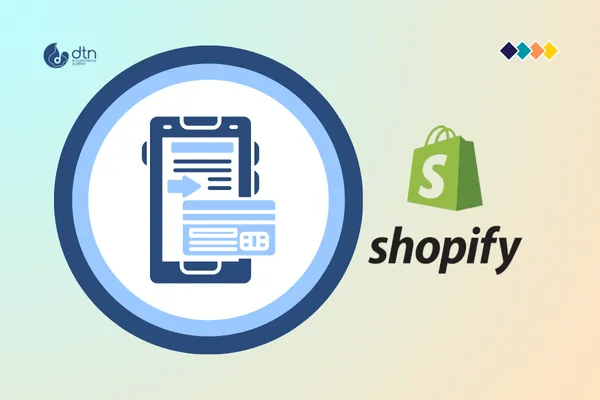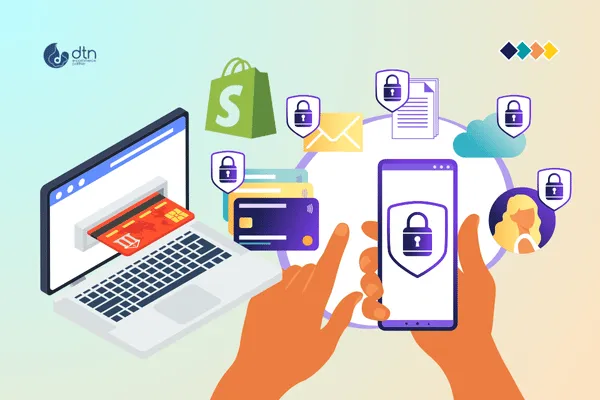Shopify’s user-friendly platform and robust features have made it a popular choice for online businesses of all sizes. But one crucial aspect of launching your online store is choosing the right payment gateway – a system that processes your customer’s payments and securely transmits funds to your bank account.
With an abundance of options available, selecting the ideal gateway for your specific needs can feel overwhelming. This comprehensive guide aims to equip you with the knowledge to confidently navigate the world of Shopify payment gateways.
Table of Contents
Understanding the Essentials
Before diving into specific gateways, let’s clarify some fundamental concepts:
- Payment Gateway vs. Payment Processor: While often used interchangeably, these terms have distinct meanings. A payment gateway acts as an intermediary, connecting your online store to the payment processor. The payment processor handles the actual transaction processing, ensuring the funds are transferred safely and securely.
- Transaction Fees: Payment gateways typically charge fees for each transaction. These fees can vary based on factors like transaction volume, payment method, and gateway provider.
- Security and Compliance: Choosing a secure payment gateway is paramount. Look for gateways that adhere to industry standards like PCI DSS (Payment Card Industry Data Security Standard) to protect sensitive customer data.
- Customer Support: Reliable customer support is crucial, especially when you encounter issues or have questions about your transactions.

Types of Shopify Payment Gateways
Shopify offers a diverse range of payment gateways, categorized into three main types:
1. Shopify Payments
- Built-in Convenience: Shopify Payments, formerly known as Shopify POS, is a seamless, integrated solution directly within your Shopify store.
- Low Processing Fees: Shopify offers competitive transaction fees compared to other gateways, often with no monthly fees.
- Streamlined Setup: No need for external accounts or complex configurations – everything is managed within your Shopify dashboard.
- Simplified Operations: Reconciling transactions and managing payouts becomes effortless with Shopify Payments’ unified system.
- Regional Availability: While available in many regions, Shopify Payments may not be accessible in all countries.
2. Third-Party Payment Gateways
-
- Wide Selection: Shopify integrates with numerous third-party gateways, providing a wide range of features and options to cater to your specific needs.
- Specialized Features: Some gateways excel in specific areas like mobile payments, recurring subscriptions, or international transactions.
- Flexibility and Customization: Third-party gateways offer more customization and flexibility compared to Shopify Payments.
- Competitive Pricing: Comparing fees across different providers can help you find the most cost-effective solution.
- Potential for Integration Challenges: Setting up and integrating third-party gateways might require more technical knowledge and can potentially lead to complexities.
3. Alternative Payment Methods
- Beyond Credit Cards: Shopify supports alternative payment methods like PayPal, Apple Pay, Google Pay, and local payment options popular in specific regions.
- Enhanced Customer Convenience: Offer more payment options to cater to diverse customer preferences and increase conversion rates.
- Global Reach: Expand your customer base by offering local payment methods preferred in international markets.
- Additional Fees: Some alternative payment methods might incur additional fees, which should be factored into your cost analysis.

Choosing the Right Gateway for Your Business
Several factors influence your choice of Shopify payment gateway:
- Transaction Volume: If you expect high transaction volumes, consider gateways with tiered pricing structures or volume discounts.
- Target Market: Identify the preferred payment methods of your target audience to ensure a seamless customer experience.
- Industry-Specific Needs: Certain industries like e-commerce or subscription services might require specialized gateways.
- International Expansion Plans: Choose gateways that support your desired international markets and currencies.
- Security and Compliance: Prioritize gateways with robust security protocols and compliance certifications to protect customer data.
- Customer Support: Evaluate the level of customer support offered by each gateway and their responsiveness to inquiries.

Popular Shopify Payment Gateways
Here’s a brief overview of some widely used Shopify payment gateways:
Third-Party Gateways
- PayPal: A global leader in online payments, renowned for its ease of use and strong brand recognition.
- Stripe: Popular for its user-friendly interface and wide range of features, including recurring payments and fraud prevention tools.
- Square: Excellent for businesses that also accept in-person payments with its point-of-sale (POS) system.
- Amazon Pay: Streamlines checkout for Amazon customers, increasing convenience and conversion rates.
- Braintree: A robust platform offering comprehensive payment processing, fraud prevention, and risk management solutions.
Alternative Payment Methods
- Apple Pay: Provides a secure and convenient payment experience for iPhone and Apple Watch users.
- Google Pay: A digital wallet offering seamless payments across Android devices.
- Klarna: Offers buy-now-pay-later (BNPL) options, which can be appealing to customers.

Conclusion
Selecting the right Shopify payment gateway is a crucial decision that impacts your sales, customer experience, and overall business success. Carefully assess your business needs, compare options, and leverage the information presented in this guide to make a well-informed choice.
Remember, the best payment gateway is the one that best aligns with your specific requirements and helps you optimize your online sales while ensuring a smooth and secure customer experience.
Frequently Asked Questions
We’ve compiled a list of answers to common questions.
What advantages does Shopify Payments offer over third-party payment gateways?
Shopify Payments offers low transaction fees, seamless integration, simplified setup, and unified transaction management within the Shopify dashboard. However, its availability is region-dependent, and merchants may need third-party gateways in unsupported regions.
How do alternative payment methods benefit Shopify merchants?
Alternative payment methods like PayPal, Apple Pay, and Klarna provide enhanced convenience for customers, offer global payment options, and cater to diverse preferences, helping increase conversion rates and broaden customer reach.
What factors should merchants consider when selecting a Shopify payment gateway?
Key factors include transaction volume, target market preferences, industry-specific needs, international expansion plans, security protocols, and the quality of customer support offered by the payment gateway provider.
What are some popular third-party payment gateways integrated with Shopify?
Popular options include PayPal, known for ease of use and global reach; Stripe, offering user-friendly features and fraud prevention; Square, great for businesses accepting in-person payments; and Braintree, which provides comprehensive fraud management solutions.



